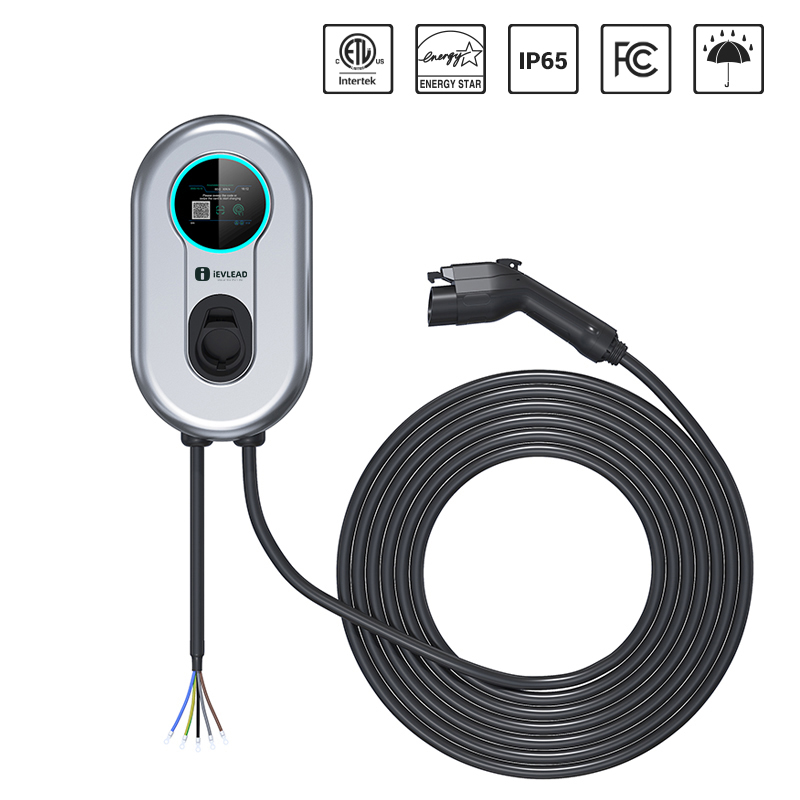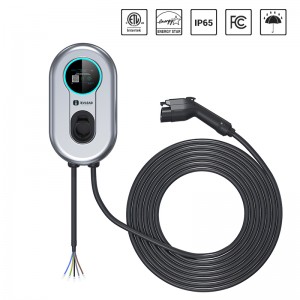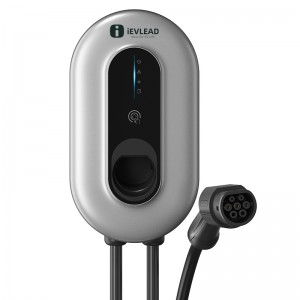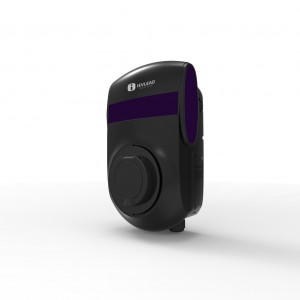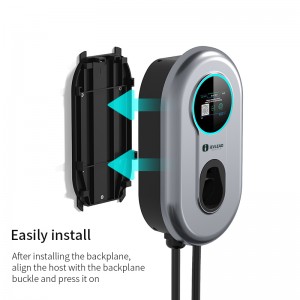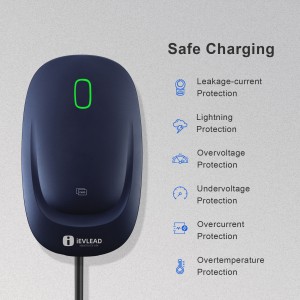Products
iEVLEAD 11.5KW Level2 AC Electric Vehicle Charging Station
Production Introduction
iEVLEAD EV Charger is the very affordable way to charge your EV from the comfort of your own home,meeting electric vehicle charging NA standards(SAE J1772,Type1). It has a visual screen, connects via WIFI, and can be charged on the APP. Whether you set it up in your garage or by your driveway, the 7.4meter cables long enough to reach your Electric Vehicle. Options to start charging right away or with delay times gives you the power to save money and time.
Features
1. Design capable of supporting 11.5KW power capacity.
2. Compact and streamlined design for a minimalistic appearance.
3. Intelligent LCD screen for enhanced functionality.
4. Designed for convenient home use with intelligent control through a dedicated mobile application.
5. Connect effortlessly via a Bluetooth network.
6. Incorporate smart charging capabilities and optimizes load balancing.
7. Offer a high IP65 protection level for superior safeguarding in complex environments.
Specifications
| Model | AB2-US11.5-BS | ||||
| Input/Output Voltage | AC110-240V/Single Phase | ||||
| Input/Output Current | 16A/32A/40A/48A | ||||
| Max Output Power | 11.5KW | ||||
| Frequency | 50/60Hz | ||||
| Charging Plug | Type 1 (SAE J1772) | ||||
| Output Cable | 7.4M | ||||
| Withstand Voltage | 2000V | ||||
| Work Altitude | <2000M | ||||
| Protection | over voltage protection, over load protection, over-temp protection, under voltage protection, earth leakage protection, lightning protection, short circuit protection | ||||
| IP level | IP65 | ||||
| LCD Screen | Yes | ||||
| Function | APP | ||||
| Network | Bluetooth | ||||
| Certification | ETL, FCC, Energy Star | ||||
Application



FAQs
1. What types of EV chargers do you manufacture?
A: We manufacture a range of EV chargers including AC EV charger and DC fast chargers.
2. How do you guarantee the quality?
A: We have 100% test before delivery, the warranty time is 2 years.
3. What's the rated of EV Charging Cable you have?
A: Single phase16A / Single phase 32A / Three phase 16A / Three phase 32A.
4. Can I take my residential EV charger with me if I move?
A: In most cases, residential EV chargers can be uninstalled and taken to a new location. However, it is recommended to consult a professional electrician during the uninstallation and reinstallation process to ensure a safe and proper transfer.
5. Can a residential EV charger be used in apartment complexes or shared parking spaces?
A: Residential EV chargers can be installed in apartment complexes or shared parking spaces, but it may require additional considerations. It's important to check with the relevant authorities or property management to understand any specific regulations, permissions, or restrictions that may apply.
6. Can I charge my electric vehicle with a residential EV charger in extreme temperatures?
A: Residential EV chargers are generally designed to operate within a wide temperature range. However, extreme temperatures (very high or very low) may affect the charging efficiency or overall performance. It's best to consult the charger's specifications or contact the manufacturer for guidance.
7. Are there any potential hazards associated with a residential EV charger?
A: Residential EV chargers are designed with safety features to minimize hazards. However, like any electrical device, there is a minimal risk of electrical issues or malfunctions. It's important to ensure proper installation, follow safety guidelines, and promptly address any unusual behavior or faults.
8. What is the lifespan of a residential EV charger?
A: The lifespan of a residential EV charger can vary depending on the brand, model, and usage. However, on average, a well-maintained and properly installed residential EV charger can last anywhere from 10 to 15 years. Regular inspections and servicing can help prolong its lifespan.
RELATED PRODUCTS
Focus on providing EV Charging Solutions since 2019

